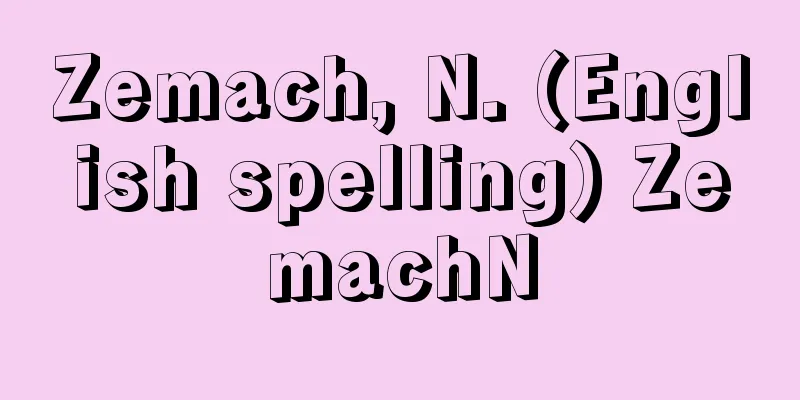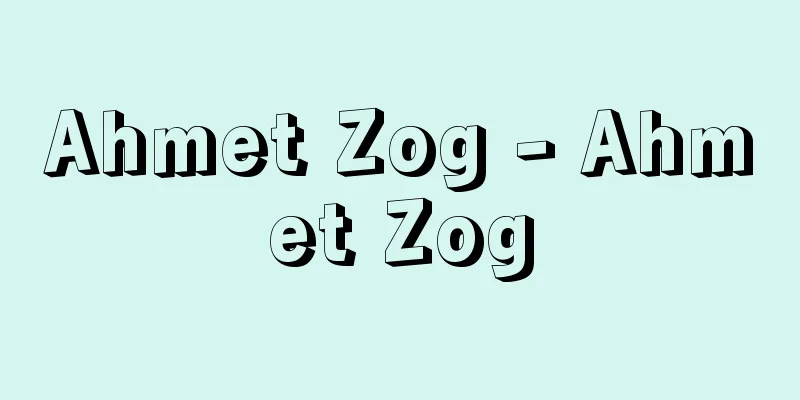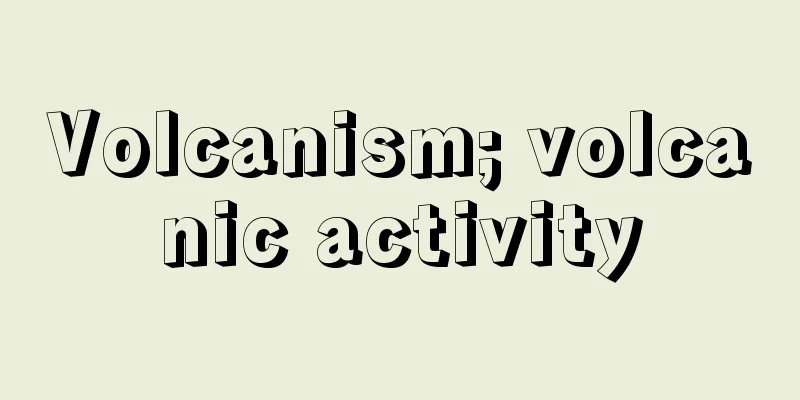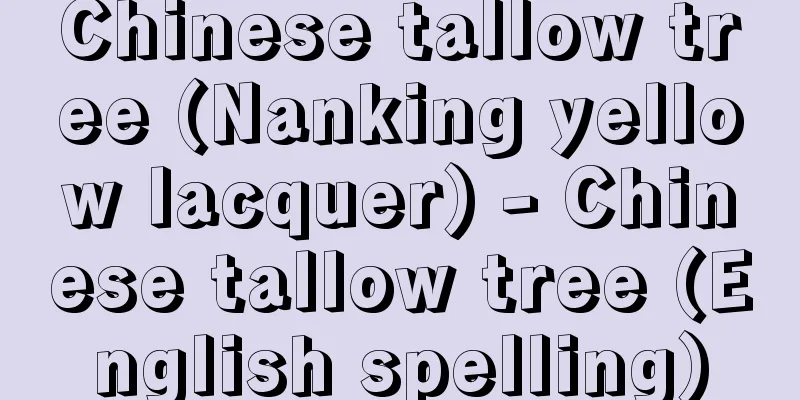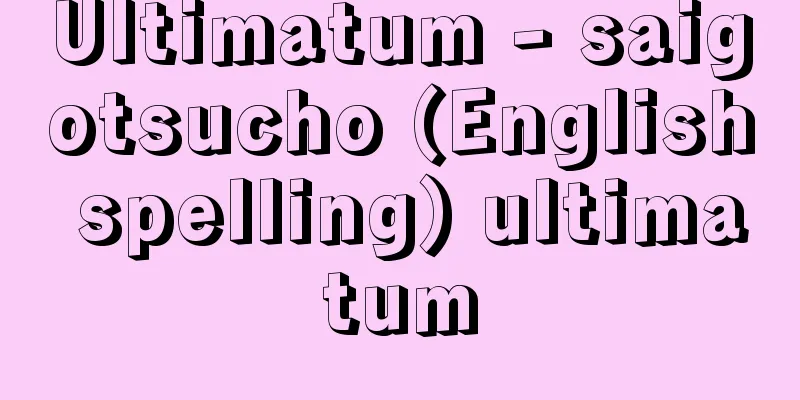Diplomacy - Going
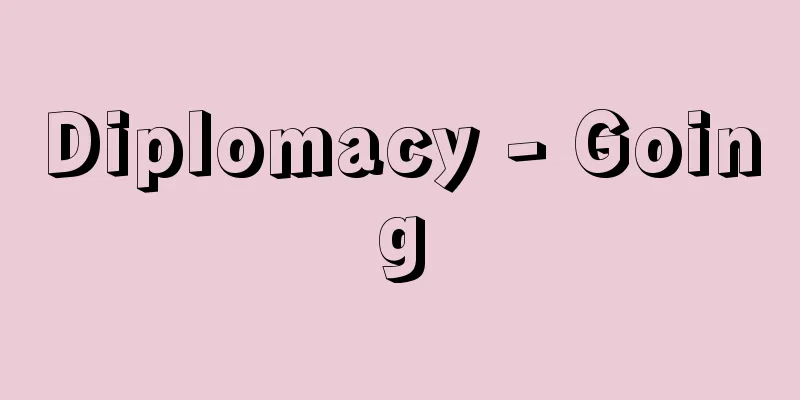
|
The word diplomacy is used in various ways in daily life. It can mean relations or negotiations with foreign countries, lobbying by an organization to the outside world, and even going out to visit a place as part of a company or similar. However, it generally refers to negotiating relations between nations, and is used in this sense here. In English, the word diplomacy means diplomacy (which originally meant a document, as it meant to be folded), and it is said that diplomacy was first used to mean diplomacy in 18th century England. In Japanese, diplomacy is an abbreviation of the word foreign relations, which was used at the end of the Edo period, but it does not simply refer to negotiations with foreign countries, but often refers broadly to foreign policy as a whole. War is a part of foreign policy, but it is not diplomacy. War is an attempt to resolve disputes between nations through the use of force, while diplomacy is, in principle, an attempt to resolve them peacefully. Diplomacy has two aspects: deciding on foreign "policy" and implementing the decided policy through "negotiations" with the other country. These two aspects should be logically distinguished, but in reality they are closely integrated, and diplomacy should be said to be the unity of both aspects. [Takashi Saito] The emergence of diplomacyIn the past, when humans lived in primitive groups such as families, clans, and villages, it seems that fear and hostility were directed toward other groups and group members. In such a primitive age, when people from other groups were considered dangerous or impure, diplomacy could be seen to have emerged when messengers traveled back and forth to conduct some kind of trade, and were not killed but were given some kind of privilege. The oldest treaty known from archaeology is a stone inscription excavated in Mesopotamia that is estimated to date back to around 3000 BC. It is about a border dispute between the city-state of Lagash and the neighboring city-state of Umma. Things similar to modern diplomatic relations and international law could be found in ancient India, ancient China, and ancient Greece. However, diplomatic relations and international law in the world's international relations have their origins in Western Europe, only a few hundred years ago. In other words, diplomatic practices that arose in northern Italy during the Renaissance were adopted by European countries, and gradually spread and were introduced to countries outside of Europe. For example, terms such as ambassador, extraordinary, and plenipotentiary are used with roughly the same meaning as they were in the 16th and 17th centuries. In the 15th century, Italy established permanent diplomatic missions, and this practice spread to other European countries. [Takashi Saito] Diplomatic HistoryThe actual diplomatic relations of the absolutist countries of Europe that began here were relations between monarchs. The state and the people were considered the property of the monarch, and foreign relations were matters of dynastic interest. Foreign policy decisions were in the hands of the monarch or his representative, and the main task of diplomatic envoys was to find out the state of affairs in other countries and to move the monarch in a direction favorable to their own country. The stage for diplomacy was the imperial court, and the techniques were to gain personal favor, seduction, or bribery. It was not uncommon for hokan-type people to be appointed as diplomatic envoys because it was necessary to win the favor of the monarch and his favorite concubine. This court diplomacy was broken by the independence of the United States and the French Revolution, and the Congress of Vienna (1814-15) was the last glorious act of court diplomacy. The ranks and seating of diplomatic envoys were determined at the Congress of Vienna and the Congress of Aix-la-Chapelle (1818). In the 19th century, trade treaties were concluded, which shows that diplomacy had moved away from dynastic interests and was based on the interests of modern capitalism. In the UK, where parliamentary politics developed earlier than other countries, the government published documents on foreign relations called the Blue Book and White Papers, and in the US, a collection of documents on foreign relations was also published. Diplomacy was gradually carried out by bureaucrats, and the Ministry of Foreign Affairs became the specialist for handling it. Furthermore, in the second half of the 19th century, the great powers of Europe adopted imperialist policies one after another, and secret diplomacy was also conducted between countries, and many secret treaties were concluded, especially before and during World War I. It was after World War I that the public's interest in diplomacy increased and the public's right to have a say was recognized, after the transition from the so-called "old diplomacy" to the "new diplomacy." [Takashi Saito] Issues in New DiplomacyImmediately after the Russian Revolution, the Soviet government exposed the secret treaties on the division of territories between Britain, France, Italy, and Imperial Russia. Then, US President Wilson put forward the Fourteen Points as the peace policy after World War I. These points made open diplomacy, rather than secret diplomacy, the watchword of the New Diplomacy. The devastation of World War I made the people of each country more interested in international issues, and they began to demand the democratization of foreign policy as well as the democratization of domestic systems. In this respect, the American system (the declaration of war was the authority of the Federal Congress, and ratification of a treaty required the approval of more than two-thirds of the Senate) was seen as an example of democratic control of foreign policy. It was because of this provision that the US Senate refused to ratify the Treaty of Versailles, which Wilson himself had concluded. The New Diplomacy's goal was to reject the territorial expansionism and power politics seen in the secret treaties of World War I. The creation of the League of Nations was supposed to be useful for this purpose, but the League itself became dysfunctional due to the non-participation of the United States and the withdrawal of Japan, Germany, Italy, and other nations, and in the end, it was unable to stop the blatant aggression of these Axis powers, and the world was plunged into another world war. After World War II, the United Nations was created, and, learning from the failure of the League of Nations, it has developed into a global universal organization and is the stage for conference diplomacy. Today, diplomacy is conducted not only between countries, but also through international organizations such as the United Nations. [Takashi Saito] Foreign Policy FormationA country's foreign policy is formulated by an individual or group acting on behalf of the state. This policy maker is particularly important in diplomacy, because in today's international society, only the government of each country has the authority to negotiate diplomacy. Since the 1980s, the international development of non-governmental organizations (NGOs) and the development of private diplomacy have been characteristic. However, since it is the government that has monopolized power and is best able to collect information on international issues, it can be said that diplomacy is the government's job. The head of government plays the most important role in foreign policy decisions, and in most cases this is the prime minister. In the United States and the French Fifth Republic, the president is the head of government. Under the head of government, the person who deals mainly with foreign affairs is the foreign minister (in the United States, the secretary of state). In socialist countries such as the Soviet Union, the person who holds the real power in foreign policy is not the head of government but the person who controls the Communist Party's Politburo. In Western countries, the foreign ministry plays an important role in policy decisions. Generally, such government organizations are responsible for implementing policies, but in the modern world, foreign policy is highly specialized, and in cases where the head of government does not have an opinion on foreign policy or where governments change frequently, foreign affairs bureaucrats may be responsible for formulating policies. In the era of court diplomacy, the judgment of diplomatic envoys as representatives of the monarch was important, but with the development of modern bureaucratic systems and the development of means of transportation and communication, the role of diplomatic envoys has relatively declined, and the role played by the home government, especially the Ministry of Foreign Affairs, has become more important. The modern Ministry of Foreign Affairs not only oversees diplomatic envoys and implements foreign policy, but also occupies an important position in foreign policy decision-making. In addition, there are cases where government agencies other than the Ministry of Foreign Affairs play an important role in policy decision-making. For example, the actions of the Japanese military in the run-up to the Pacific War and the German military before World War I are examples of this. [Takashi Saito] Parliament and public opinionIt was after World War I that Congress began to speak out more actively about foreign policy. It was the United States that clearly defined the powers of Congress regarding foreign policy, while the powers of the parliaments of other countries vary from country to country. However, Congress is often unable to independently formulate foreign policy, and is often in the position of having to veto or not veto proposals from the government. A good example of this is refusing to ratify treaties concluded by the government. Public opinion regarding foreign policy, like Congress, can only play a passive role. Due to insufficient information and emotional excitement, it is easy for the government to manipulate public opinion. Political parties and various organizations absorb public opinion and lead it to take a stance of opposition or cooperation with the government. [Takashi Saito] Images in policy makingWhether a foreign policy is appropriate to the international environment depends on whether information is accurately grasped. However, no matter how high the quality of information is or how much information is available, that information is filtered by the perception of the policy maker. In other words, every policy maker has a bias (a certain tendency), and the degree to which that bias distorts the objective reality determines whether a foreign policy is sound or unsound. Such bias is determined by various factors such as the decision maker's ethnicity, social class, religious beliefs, ideology, generation, and education. For example, the leaders of militarist Japan misjudged the resistance of Americans, but this was due to the nationalistic ideology based on the narrow-minded education of the Japanese military. British leaders before World War II started from a false premise about Hitler's thinking. During the Cold War, policy makers in the United States and the Soviet Union had an image of each other as hostile. International exchange and peace education are necessary to eliminate mutual misunderstandings caused by such images. Today, the mission of diplomacy also extends to educating the people in order to prevent the world from being led to the destruction of nuclear war. [Takashi Saito] Current state of diplomacyThe objectives of diplomacy include diplomatic courtesy, publicity abroad, and protection of Japanese nationals residing abroad, in addition to negotiations and information gathering. In the current international situation, diplomacy itself has become extremely multifaceted, and the Ministry of Foreign Affairs is forced to seek cooperation from other ministries and agencies. For example, economic issues such as trade friction have become important international issues. In addition, the United Nations and various international conferences have become the main stage for diplomacy, and there has been a development that differs from the traditional method of bilateral consultations. Frequent summit meetings are also a recent feature, and in the West in particular, they have become regular meetings such as summits of developed countries. From the late 1980s to the 1990s, there were Russia's participation in summits and APEC (Asia-Pacific Economic Cooperation) summit meetings. There are two sides to the argument about the merits and demerits of such summit diplomacy. On the one hand, there is the effect of policy decisions and implementation being made immediately, and on the other hand, if it fails, the government is immediately held responsible. Today, there are more than 190 nations. In this respect, it may be said that nations are all equal. The vertical relationships that existed in the old colonies are no longer accepted as a pretense. Moreover, peoples of nations are gradually becoming closer to one another across borders. International cooperation between non-governmental organizations is also progressing significantly. Diplomacy is no longer a relationship between nations, but the lives of humanity around the world are still run on a national basis, and the maintenance of world peace is the main task of diplomacy between nations. [Takashi Saito] "Modern Diplomacy Theory" by Uchiyama Masuku (1971, Yushindo Kobunsha)" ▽ "Analysis of Modern Diplomacy" by Sakano Masataka (1971, University of Tokyo Press)" ▽ "Diplomacy" by H. Nicholson, translated by Saito Makoto and Fukaya Mitsuo (1965, University of Tokyo Press)" ▽ "Policy Making in Diplomacy" by J. Frankel, translated by Kawai Hidekazu (1970, University of Tokyo Press)" ▽ "50 Years After Pearl Harbor: The Changing International Community and Japan-U.S. Relations" edited by Kimura Masato and Takasugi Tadaaki (1991, Toyo Keizai Shinposha) ▽ "Modern Japanese Diplomacy: Amid Changes at the End of the Century" by Inoguchi Takashi (1993, Chikuma Shobo) ▽ "Collection of Postwar Japanese Diplomacy Essays: From the Peace Debate to the Gulf War" edited and commented by Kitaoka Shinichi (1995, Chuokoron-Shinsha)" ▽ "Military Power and Modern Diplomacy: Learning the Conditions of Peace from History and Logic" by Gordon A. Craig et al., translated by Kimura Shuzo, Takasugi Tadaaki et al. (1997, Yuhikaku)" ▽ "Postwar Japanese Diplomacy" by Manabe Shunji (1999, Kansai University Press)" ▽ "Sakamoto Masahiro and Takita Kenji (eds.), Research on Modern American Diplomacy (1999, Chuo University Press)" ▽ "Takubo Tadae et al. (eds.), Reexamining Japanese Diplomacy: Examining the 'Yoshida Doctrine'" (2000, Jiji Press) [References] | | | | |Source: Shogakukan Encyclopedia Nipponica About Encyclopedia Nipponica Information | Legend |
|
外交ということばは日常的にさまざまな意味で用いられる。外国との交際あるいは交渉、ある団体の外部に対する働きかけ、さらに会社などで外部へ出て訪問することなどを意味する。しかし、一般的には国家と国家の交渉関係をさしており、ここではこの意味に用いる。英語で外交ということばはdiplomacy(折り畳むという原義から文書を意味した)であり、diplomacyが外交の意味に用いられたのは18世紀のイギリスにおいてであるといわれる。日本語で外交とは、外国交際という幕末に用いられたことばの略であるが、単に外国との交渉をさすだけでなく、広く対外政策全体を指示する場合が多い。 戦争は対外政策の一部であるけれども外交ではない。戦争は国家間の争点を武力によって解決しようとするものであり、外交はたてまえとして平和的に解決しようとするものである。外交には、対外「政策」を決定する面と、決定された政策を相手国との「交渉」によって実現する面との両面がある。この両面は論理的に区別されるべきであるが、しかし、実際においてはこの両面は密接に融合しており、外交とは両面の統一であるというべきである。 [斉藤 孝] 外交の発生昔、人間が家族・氏族・村落などの原始的集団において生活していたころ、他の集団・集団員に向けられるものは、恐怖と敵視であったらしい。他の集団の人間を危険視したり、不浄視したりしていたこのような未開の時代に、なんらかの取引のために使者が往来し、しかもこの使者が殺されることもなく、なんらかの特権を認められたとき、外交の発生をみることができるであろう。考古学によって知られるもっとも古い条約は、メソポタミアで発掘された紀元前3000年ごろのものと推定されている石文である。これは、都市国家ラガシュと隣の都市国家ウンマとの間に結ばれた国境紛争に関するものである。近代の外交関係や国際法に類似したものは、古代インドや古代中国あるいは古代ギリシアなどにもみられた。しかし、世界の国際関係における外交関係および国際法は、その起源をわずか数百年前の西ヨーロッパにもつものである。すなわち、ルネサンス期の北イタリアでおこった外交慣習がヨーロッパ諸国に取り入れられ、それがしだいに広まってヨーロッパ以外の国々にも伝えられたのである。たとえば、大使ambassador、特命extraordinary、全権plenipotentiaryなどの名称は、16~17世紀に用いられたのとほぼ同様の意味で用いられている。15世紀にイタリアには常駐の外交使節が置かれ、この慣行がヨーロッパの国々にも伝播(でんぱ)していった。 [斉藤 孝] 外交の歴史ここに開幕したヨーロッパの絶対主義諸国の外交関係の実態は、君主相互の関係であった。国家と国民は君主の財産とみられ、対外関係は王朝の利害の問題に関するものであった。対外政策の決定は君主あるいはその代理者の手に握られており、外交使節は相手国の国情を探るとともに、相手国の君主を自国に有利な方向に動かすことをおもな任務としていた。外交の舞台は宮廷であり、その技術は個人的な好感の獲得や誘惑あるいは買収であった。君主や寵妃(ちょうき)の歓心を買うことが必要とされたために幇間(ほうかん)タイプの人物が外交使節として登用されることも珍しくなかった。この宮廷外交が打破されたのはアメリカ合衆国の独立とフランス革命によってであり、ウィーン会議(1814~15)は宮廷外交の最後の華やかな一幕であった。なお、このウィーン会議およびエクス・ラ・シャペル会議(1818)において外交使節の階級および席次が定められた。 19世紀において、通商条約などが結ばれたが、これは、外交が王朝的利害を脱して、近代資本主義の利害に基づくに至ったことを物語っている。議会政治が他の国に先駆けて発達したイギリスでは、Blue BookやWhite Papersとよばれる政府の対外関係資料が出され、アメリカでも対外関係資料集が出されていた。外交はしだいに官僚がその担い手となり、外務省が専門的に処理するようになった。さらに、19世紀の後半になると、ヨーロッパの列強は相次いで帝国主義政策をとり、各国間に秘密外交も行われ、とくに第一次世界大戦前および大戦中には多くの秘密条約が結ばれた。外交に対する国民の関心が高まり、国民の発言権が認められるようになったのは、第一次世界大戦以降のことであり、いわゆる「旧外交」から「新外交」への移行ののちである。 [斉藤 孝] 新外交の諸問題ロシア革命直後のソビエト政権は、イギリス・フランス・イタリア・帝政ロシア間の領土分割に関する秘密条約を暴露した。続いてアメリカ大統領ウィルソンは第一次世界大戦後の講和の方針として「十四か条」を掲げた。これらによって秘密外交に対する公開外交が新外交の合いことばとなった。第一次世界大戦の惨禍は各国の国民に国際問題に対する関心を高め、国内体制の民主化とともに対外政策の民主化が要求されるようになった。この点において、アメリカの制度(開戦の布告は連邦議会の権限であり、条約の批准には上院の3分の2以上の賛成が必要である)は対外政策の民主的統制として模範視された。この規定によってウィルソン自らが結んだベルサイユ講和条約をアメリカ上院は批准を拒否したのであった。新外交が課題としたのは、第一次世界大戦における秘密条約にみられたような領土拡張主義と権力政治の否定であった。国際連盟の創設はその目的のために役にたつはずであったが、連盟自体がアメリカの不参加および日本、ドイツ、イタリアなどの脱退によって機能不全に陥り、結局これらの枢軸国の露骨な侵略主義を阻止しえず、世界はふたたび大戦に突入したのであった。第二次世界大戦後、国際連合が創設され、国際連盟の失敗の経験を生かして世界的な普遍的機構として発展し、会議外交の舞台となっている。現在の外交は諸国相互間とともに、国際連合はじめ国際機構を通じても行われている。 [斉藤 孝] 対外政策の形成一国の対外政策は、国家を代表して行動する個人あるいは集団によって策定される。この政策決定者というものがとくに外交においては重要な意味をもっている。というのは、今日の国際社会においては各国の政府だけが外交交渉の権限をもっているからである。1980年代以降の特徴として、非政府組織(NGO)の国際的発展があり、民間外交の発展がみられる。しかし、権力を独占しているのは政府であり、また政府が国際問題に関する情報をもっともよく集めうるのであり、外交は政府の仕事となっているというべきであろう。対外政策決定について、もっとも重要な役割を果たすのは政府の長であり、普通の場合は首相がそうである。アメリカやフランス第五共和政の場合には大統領が政府の長である。政府の長の下でもっぱら外交問題にあたるのが外務大臣(アメリカの場合は国務長官)である。ソ連はじめ社会主義国では、外交政策の実権を握るのは、政府の長ではなく共産党の政治局を支配する者であった。外務省は、西側の諸国の場合、政策の決定に重要な役割をもっている。一般に、このような政府機構は政策の執行にあたるのであるが、現代世界においてはとくに外交政策は高度に専門化されており、政府の長が外交政策について意見をもたない場合、あるいは政府が頻繁に交替する場合など、外務官僚が政策の策定にあたることがある。宮廷外交の時代には君主の代表としての外交使節の判断が重要視されたが、近代官僚制度の整備と交通・通信の手段の発達によって外交使節の役割は相対的に低下し、本国政府とくに外務省の果たす役割のほうに比重がかかるようになった。現代の外務省は外交使節を統括して外交政策の執行にあたるほか、外交政策の決定に関して重要な地位を占めている。このほか、外務省以外の政府機関が政策の決定に対して重要な役割を演ずる場合がある。たとえば太平洋戦争に至る過程の日本の軍部や第一次世界大戦前のドイツ軍部の行動がそれである。 [斉藤 孝] 議会と世論議会が対外政策について積極的に発言するようになったのは、第一次世界大戦以降のことである。対外政策について議会の権能を明確に規定したのはアメリカであり、他の国々の議会の権限については国によってさまざまである。しかし、議会は対外政策を自主的に形成できないことが多く、政府の提案に対して拒否するか否かという立場に置かれることが多い。政府の結んだ条約に対して批准を拒否する場合がそのよい例である。外交政策に関する世論も議会と同様に消極的な役割しか果たしえない。不十分な情報と感情的な興奮によって、政府の世論操作にのせられやすいのである。諸政党やさまざまな団体は世論を吸収し、また世論を指導して政府に反対あるいは協力の態度をとる。 [斉藤 孝] 政策決定におけるイメージ外交政策が国際環境に対して適合的であるか否かは、情報が的確に把握できているかによる。ところで、いかに情報の質が優れ、情報の量が多くとも、その情報は政策決定者のイメージによってフィルターにかけられる。いわば政策決定者はだれでもバイアス(特定の傾向)があるのであり、そのバイアスが客観的現実をゆがめる度合いによって外交政策は健全あるいは不健全なものとなる。そのようなバイアスは、決定者の民族・社会的階層・宗教的信仰・イデオロギー・世代・教育などの諸種の要素によって決定されるものである。たとえば、軍国主義日本の指導者はアメリカ人の抵抗力について観察を誤ったが、それは、日本軍部の偏狭な教育に基づく国家主義的イデオロギーによるものである。第二次世界大戦前のイギリスの指導者はヒトラーの思考について誤った前提から出発していた。冷戦時代のアメリカやソ連の政策決定者は相互に敵対的とみるイメージをもっていた。このようなイメージから相互に誤解をなくすために国際交流や平和教育が必要になるのである。今日、世界を核戦争の破滅に導かないために外交の任務は国民教育にも及んでいるのである。 [斉藤 孝] 外交の現在外交の目的として、交渉や情報収集のほかに、外交的儀礼、対外宣伝、在留自国民の保護などがある。現在の国際情勢においては、外交そのものがきわめて多面的になっており、外務省はほかの省庁との協力を仰がざるをえなくなっている。たとえば、貿易摩擦の問題のように経済問題が国際問題として重要なものになっている。それに、国際連合はじめ諸種の国際会議が外交の主要な舞台となっており、2国間の協議というような従来の方式とは異なった発展がある。首脳会談が頻繁に行われることも最近の特徴であって、とくに西側では先進国サミット(頂上会談)のように定期的に行われるに至っている。1980年代末から1990年代にかけてはロシアのサミット参加やAPEC(アジア太平洋経済協力)首脳会談などがある。このような首脳間外交についてはその得失について両論がある。すなわち、政策の決定と執行とが即座に行われるという効果の面と、失敗すればただちに政府の責任となる面である。 今日、国家の数は190を超える。このような点では諸国民は横に対等に並んでいるといってもよいであろう。旧来の植民地のような垂直式の関係はたてまえとして認められなくなった。しかも、国境を越えた諸国民相互の交際はしだいに密接化しつつある。政府機関以外の民間諸機関の国際的連携も著しく進みつつある。外交は国家と国家との関係ではなくなりつつあるが、しかしなお、世界人類の生活は国家を単位として営まれており、世界平和の維持は国家間外交のおもな任務である。 [斉藤 孝] 『内山正熊著『現代外交論』(1971・有信堂高文社)』▽『坂野正高著『現代外交の分析』(1971・東京大学出版会)』▽『H・ニコルソン著、斎藤真・深谷満雄訳『外交』(1965・東京大学出版会)』▽『J・フランケル著、河合秀和訳『外交における政策決定』(1970・東京大学出版会)』▽『木村昌人・高杉忠明編著『パール・ハーバー50年――変容する国際社会と日米関係』(1991・東洋経済新報社)』▽『猪口孝著『現代日本外交――世紀末変動のなかで』(1993・筑摩書房)』▽『北岡伸一編・解説『戦後日本外交論集――講和論争から湾岸戦争まで』(1995・中央公論社)』▽『ゴードン・A・クレイグほか著、木村修三・高杉忠明ほか訳『軍事力と現代外交――歴史と論理で学ぶ平和の条件』(1997・有斐閣)』▽『真鍋俊二著『戦後日本外交論』(1999・関西大学出版部)』▽『坂本正弘・滝田賢治編著『現代アメリカ外交の研究』(1999・中央大学出版部)』▽『田久保忠衛ほか編著『日本外交の再点検――検証「吉田ドクトリン」』(2000・時事通信社)』 [参照項目] | | | | |出典 小学館 日本大百科全書(ニッポニカ)日本大百科全書(ニッポニカ)について 情報 | 凡例 |
>>: Kaigo (English spelling) jiè háo
Recommend
Antillas
...Most of the area is under the influence of tra...
Kogake
The main line of the Murakami Genji. Seiga family....
Children of Wrath - Children of Wrath
…Spanish critic, poet, and linguist. His represen...
Alto Alentejo - Information on Alto Alentejo
…Southern Portugal, the region south of the Tagus...
Kočiĉ, P. (English) KocicP
...A country that existed in the western Balkan P...
Red mosquito larva - Red mosquito larva
…It is a good bait for fishing sea bream, black p...
Ordines mendicantium
A monastic order of poverty and strict obedience t...
Turkish Studies - Turkish Calyx
A field of study that deals with the language, his...
Banfoline
…Yakushima Yadake (Yakushima Arrow Bamboo) P. owa...
Hadano [city] - Hadano
A city in western Kanagawa Prefecture. It was inco...
Miwa [town] - Miwa
A former town in Asakura County, central Fukuoka P...
Catholic Reformation
A movement for self-reform and reform unique to th...
Song of Myself
...As one researcher commented, "It's li...
Kaishuen - Kaishuen
…A 700m long corridor stretches from east to west...
Festuca rubra (English spelling) Festuca rubra
…【Hoshikawa Kiyochika】. … *Some of the terminolog...
